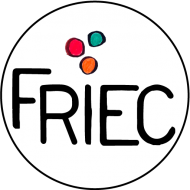It looks like nothing was found at this location. Maybe try a search?
Forum for Radical Imagination on Environmental Cultures
A program of The Nature of Cities, FRIEC is a platform for nurturing humanity’s sacred cultural relationships with urban nature. We produce place-based storytelling (essays, poetry, books, and films), and events (exhibitions, residencies, and transdiciplinary events) that inspire direct ecological actions in local landscapes.

